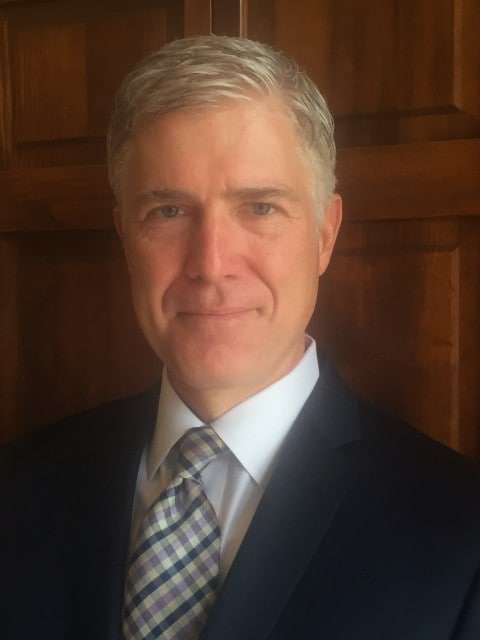The Volokh Conspiracy
Mostly law professors | Sometimes contrarian | Often libertarian | Always independent
Thoughts on the Gorsuch pick

Judge Neil Gorsuch is a well-respected jurist and a better Supreme Court nominee than I expected from Donald Trump. In retrospect, I underestimated Trump's incentive to appease more conventional Republicans by selecting a Supreme Court justice they liked.
But Gorsuch is not without significant potential flaws. I discuss his record in more detail in this just-published op ed in the New York Daily News:
Judge Neil Gorsuch, President Trump's nominee for the Supreme Court, is a well-known and widely respected conservative jurist. He has an impressive record on several issues. But some of his statements on federalism and judicial review are seriously troubling.
In legal circles, Gorsuch is probably best known for his skepticism toward the so-called Chevron doctrine, a 1984 Supreme Court decision requiring federal judges to defer to administrative agencies' interpretations of the law in cases where the text seems ambiguous. On this, Gorsuch is absolutely right. Judges, not bureaucrats, should take the lead in interpreting the law…
Judge Gorsuch also deserves praise for his rulings emphasizing that criminal law should be interpreted narrowly, and ambiguities resolved in favor of defendants….
Unfortunately, Gorsuch has made some troubling statements on federalism and judicial review. In a 2005 article, he suggested that judges should only strike down laws in "extraordinary" circumstances. This implies that merely "ordinary" or potentially contestable violations of the Constitution may be overlooked….
In the same article, Gorsuch praised New Deal-era liberals' "judicial restraint and deference to the right of Congress to experiment with economic and social policy." He urged modern liberals to "return to their New Deal roots," as exemplified by "their own judges of the New Deal era." Liberal jurists of that period advocated near-total abdication of judicial enforcement of limits on federal power. Their position was badly misguided, and utterly at odds with the originalist approach to constitutional interpretation that Gorsuch himself has advocated elsewhere.
Gorsuch's possible commitment to New Deal-liberal positions on federalism might win him some sympathy on the left. But perhaps not at a time when liberals are relying on federalism principles to, among other things, resist Donald Trump's efforts to bully sanctuary cities into submission….
Perhaps Gorsuch did not intend to embrace the full implications of these two statements. But, given the high stakes, we should - at least for the moment - take his writings both seriously and literally….
Neil Gorsuch may well turn out to be a surprisingly worthy nominee from a President who has so far shown precious little respect for the Constitution. But in these dangerous times for our constitutional system, neither the Senate nor the American people should take anything for granted.
Despite my reservations on some issues, Judge Gorsuch might well turn out to be an excellent Supreme Court justice. I am somewhat reassured by co-blogger Sasha Volokh's discussion of his record on civil liberties, and by this analysis of his limited record on free speech. At the very least, he cannot be dismissed as a mere crony of Trump's.
But this potential success should not blind us to the long-term implications of Trump's efforts to turn the GOP into a European-style big-government nationalist party. That effort proceeds apace, as evidenced by the new administration's moves against free trade, its cruelty towards refugees, the assault on federalism inherent in Trump's executive order targeting sanctuary cities, and the statements of top Trump advisers Stephen Bannon and Stephen Moore. If it continues unchecked, the nationalist transformation of the GOP is still likely to affect the party's judicial philosophy and the types of nominees it sends to the federal courts. No one Supreme Court justice is worth the grave harm that the rise of nationalism threatens to inflict on the republic.
Conservative originalists may well have won a significant battle today. But they are still in serious danger of losing the longer-term war.


Show Comments (0)